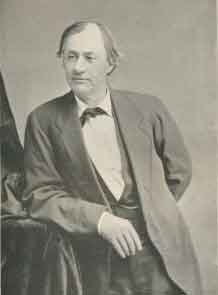Bland Ballard (judge)
| Bland Ballard | |
|---|---|
 |
|
| Associate Justice of the United States District Court for the District of Kentucky | |
|
In office October 16, 1861 – July 29, 1879 |
|
| Nominated by | Abraham Lincoln |
| Preceded by | Thomas Bell Monroe |
| Succeeded by | William Hercules Hays |
| Personal details | |
| Born |
September 4, 1819 Shelby County, Kentucky |
| Died | July 29, 1879 (aged 59) Louisville, Kentucky |
| Resting place | Cave Hill Cemetery |
| Spouse(s) | Sarah McDowell |
| Relations | Grandson of Bland Ballard |
| Alma mater | Transylvania University |
| Profession | Lawyer |
Bland Ballard (September 4, 1819 – July 29, 1879) was a United States federal judge.
Ballard was the son of James and Susannah (Cox) Ballard and grandson of the Kentucky pioneer of the same name. Ballard was born in Shelby County, Kentucky. He read law in the office of Judge James Turner Morehead in 1840 to enter the Kentucky Bar, and later was graduated from the law department of Transylvania University in 1846. He opened a private practice in Shelbyville, Kentucky, and then moved to Louisville, Kentucky, where he practiced law in partnership with the Henry Pirtle, later the distinguished Chancellor of the Louisville Chancery Court, until 1861. Ballard was connected with the business interests of Louisville and took an active interest in the city and its institutions. At one time he served as city councilor for the City of Louisville.
On October 16, 1861, Ballard received a recess appointment from President Abraham Lincoln to a seat on the United States District Court for the District of Kentucky vacated by Thomas Bell Monroe, who had become a member of the Congress of the Confederate States. Ballard was formally nominated on December 9, 1861 and on January 22, 1862, he was confirmed by the United States Senate and received his commission. He quickly reorganized the court and insured that the federal court system in Kentucky would continue without disruption. "His district was responsible for more indictments for treason and conspiracy than perhaps any other" and he was "regarded as fair-minded and guided by the law, not prejudice. He was opposed to slavery and strongly supported the Union".
...
Wikipedia
